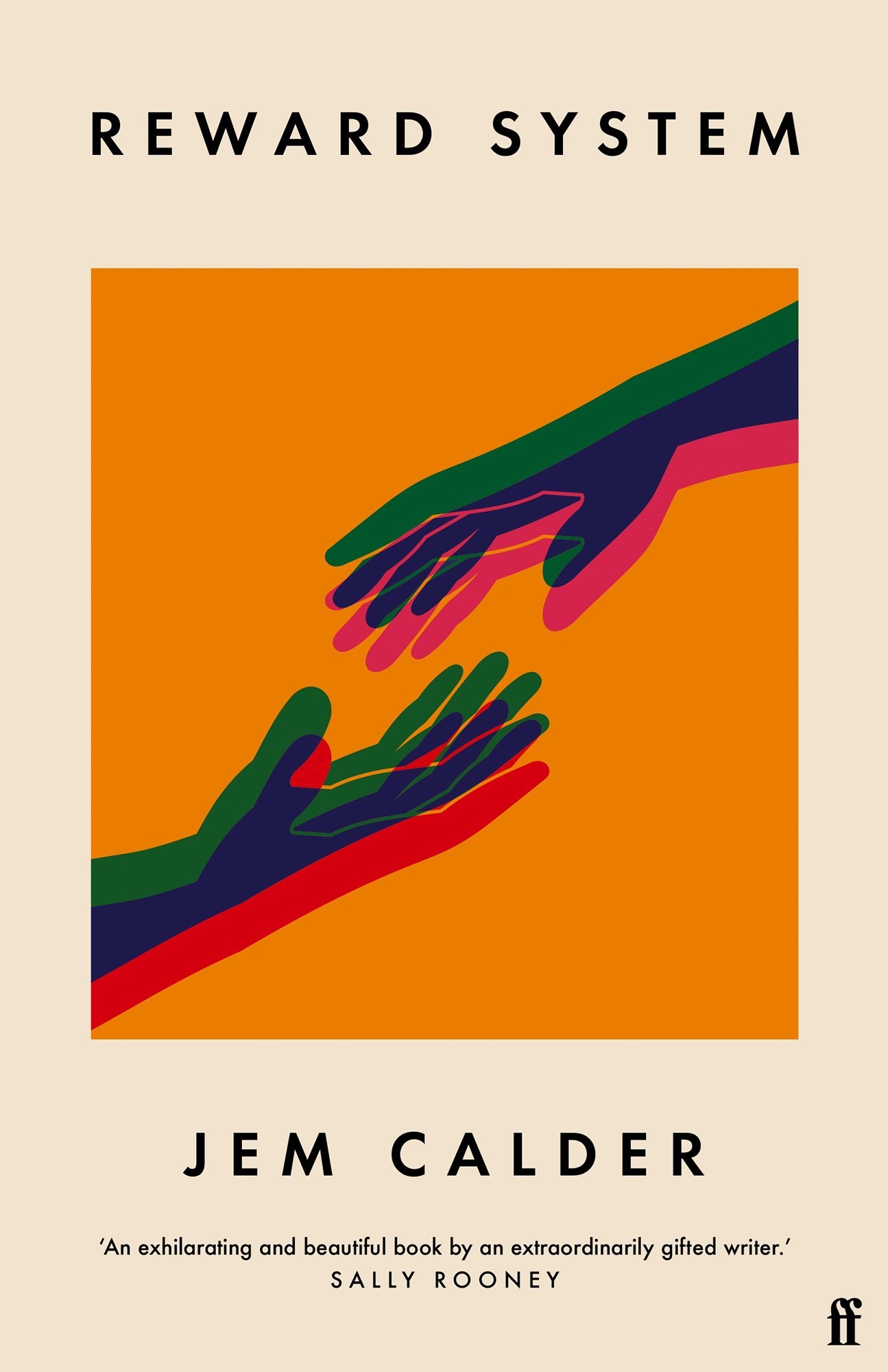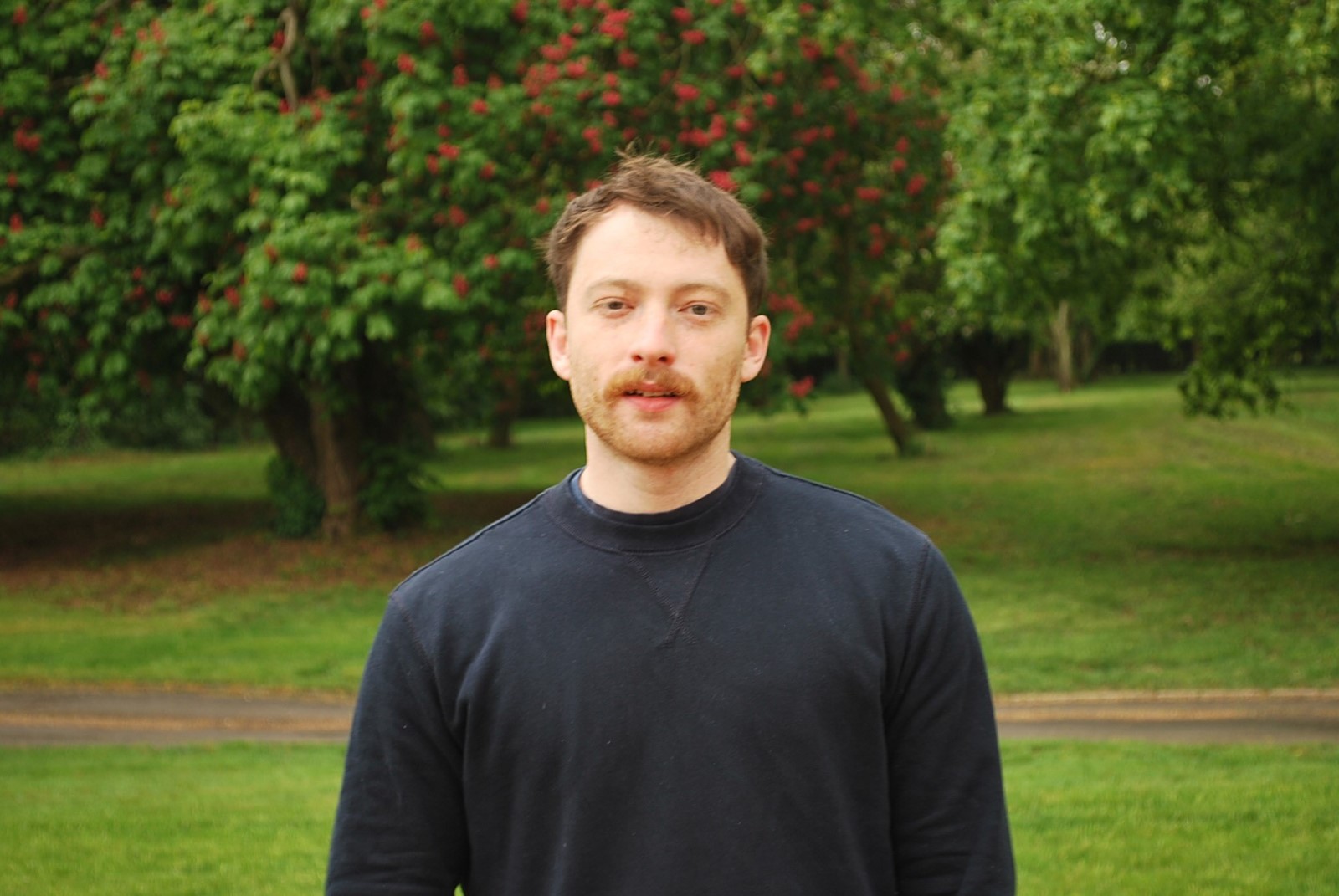I interview the writer Jem Calder by Skype, calling his phone, which I do because it makes it easier to record conversations on my laptop, but which, on the day we speak, causes the sound to dip in and out irritatingly; about 40 minutes in we get cut off entirely as Calder attempts to reject another call that’s coming through. (“For someone who spends so long thinking and trying to write about technology, I’m actually quite bad at it,” he says apologetically. “I’m not a boomer in terms of age, but in terms of my actual innate ability to use this stuff I’m hopeless.”)
Why am I opening with this? Because technology, and the way that it shapes and mediates contemporary life, is the central theme of Calder’s debut book Reward System. It is not an exaggeration to say that reading it gave me a new perspective on the apps and social media platforms that have become such an insidious part of our reality. Calder himself, who grew up in Cambridge but has been based in London for most of his adult life, has something that is vanishingly rare for a young, contemporary writer: no social media presence; he is almost ungoogleable. Written in part during the peak of the pandemic, Reward System developed from his first piece of published fiction, Distraction from Sadness Is Not the Same Thing as Happiness, which ran in Dublin literary magazine The Stinging Fly in 2018.
Lingering in the restaurant kitchens, offices, bars and flatshares of an unnamed major city, the six stories that comprise Reward System examine the surveillance and alienation of modern work, love and friendship. Characters repeat throughout the stories, and there is a narrative arc to the book that makes me wonder whether Calder considers Reward System a novel. “I would definitely describe it as interlocking short stories. It’s interesting, I was talking to someone and they described it as either a loose novel or a tight set of short stories, which I think is pretty accurate,” he says. “I think for me, the novel is a different thing, which might just come out of my reading habits, of mostly 19th-century romance novels, which are all very coherent, they have a beginning, middle and end.”
Holly Connolly: I found place – and technology, but I’ll get to that later – very interesting in the book, in that it was simultaneously specific and vague. There were parts to me which were very evocative of London, but there was also a blurriness to it.
Jem Calder: Place is intentionally left very vague in the book. The city where most of the activities are taking place is never actually explicitly named, and I like the idea of having this very broad applicability. I mean, don’t get me wrong, I’ve had a lot of experience living and working in London, and most of the years of the characters’ lives, I was living in London while I was living those years, so it’s certainly not a stretch for me to say that the book is very London-shaped.
I hear people say a lot about London, Paris, Berlin, New York, that they feel increasingly cloned, you get this almost airport-like feeling. All the same tech spaceship offices land from Silicon Valley, and then the social structures around them are reproduced so that everywhere has this vaguely San Franciscan feeling around it. In the last 15 years, we’ve seen that really accelerate. So I like the idea of it being a sort of every place, where there’s a slightly nauseous feeling to that.
HC: Do you think of Reward System as a kind of pessimistic comment on contemporary life?
JC: I think for me, and my personal experience of living in major cities, it has been very hard to be optimistic. I did not have very good job opportunities, and the decent jobs that I came across were mostly contract positions that were very temporary. You’re treated like shit, you don’t really get time to have a personal life, and the only way to deal with it is to cram all your personal enjoyment into the weekend. That model of living seemed like it was only going to increase as I got out of my twenties and into my thirties.
So I think there probably is a sort of desperate urgency to the collection because I really was writing most of it without any validation from outside, I wasn’t part of a scene. So that feeling of isolation, I certainly do appreciate that it looks like a sort of depressive realism. But at the same time, I know that for my very specific circumstances, I found it hard to think outside of those structures.

HC: You wrote an essay in Granta about how you stole the time to write while working a copywriting office job, and I wanted to talk about that relationship between making art and having a day job.
JC: There is a rich history of people slacking from their day jobs in order to write, but as I talked about in that essay, that actually doesn’t seem like something that’s going to be around for that much longer. Especially the people I know who are in slightly higher-paying jobs, the timesheets that you have to fill in, down to the very finest detail, it’s becoming impossible to find ways to work around that and reclaim any of your time.
A lot of these jobs were actually a good motivator for me, in terms of realising that something really was quite off. Without getting too basic about it, life isn’t very long, you’re here once, and to have to stifle your entire emotional life to be able to get by in an office job doesn’t make any sense anymore. The social contract of those jobs has been broken, by which I mean they encroach so much into your personal life, and no one has enough to live comfortably off, especially if you’re in one of those major, semi-identical cities.
So while on the one hand, it would be nice to think that everyone was getting their time to express themselves and to do their own creative thing, the time is really passing you by. Especially if you’re living in a major city, if you blink two years goes by, and I think it’s less even a political statement at that point, and it’s more that you need to find a thing that works for you.
HC: I was interested by what I perceived as the passivity of certain characters, particularly Julia and Nick. It felt that they had very little agency in their lives and choices. When they do make changes, like leaving their job, or moving back in with their parents, we tend to learn about it secondhand or incidentally. How intentional was this?
JC: A lot of aspects of the modern workplace and hybrid digital living do disempower us from the world, and make us more passive and bovine in terms of being part of the herd, trudging along without very much agency in our own lives. There’s a bit in the book about Julia’s tendency to not make decisions; she almost doesn’t want to interrupt the course of life, instead, she’d rather have fate decide the outcome for her and she can live with that. That’s something I have a lot of experience with, fretting over how much to impose myself on the world around me; work is a really good example of that for me.
Someone actually, and they were being generous, described the book as having a bit of a self-help feel to it, and to be honest I wasn’t actually averse to that. So long as it’s not didactic, I don’t mind a book that has a bit of belief in something, or, isn’t instructional, but at least registers the reality of how people are dealing with things and points out those patterns. In Julia’s case, she feels she’s insulated from the responsibility of having to decide what to do with her life, by just refusing to do anything and kind of drifting along. But as the book moves along she does learn to intervene in her own life.
HC: Technology, and the way it’s shaping our lives, looms large in the book. Often the received wisdom is to not ‘date’ fiction by referencing anything too heavily (eg Facebook), but you use a clever strategy of sort of breaking the thing itself down into how it’s used, and in doing so make us rethink how, say, a dating app, actually functions.
JC: Some of these stories I did write, or at least started writing, about five years ago, and when I started the book that was a major concern I had because we know from something like MySpace that things that can seem so monolithic and huge today can just disappear. But I care less and less about that as my writing life moves into its next phase. Things exist at a certain time, and as long as they’re adequately explained in the text, I don’t really see any shame in writing in the era you’re in.
There are also the social and personal resonances these kinds of technologies have; for them to be successful apps in the first place, they have to have tapped into something deep in the human psyche, or space we have in our own brains. So I don’t worry too much about that. Having said that, except for those people who try very hard to manage their own usage, the way in which people interact with technologies will only increase. I’m not so worried about these things being particularly temporary, because I do only see them deepening. I think the question for me now is, do I really care enough about this to keep on writing about it? Or would I like to focus on other things? And I’m leaning towards the latter.
There’s an interesting thing about the internet in general. All it really does is allow you to sort of stew in your memories, or review things that have happened. New things very rarely actually happen in an online space. It tends to be something in reality that catalyzes a huge reaction. And I think the sad fact is that when you’re able to minimise the online element of your life, you don’t really miss a lot. It’s like, when was the last time you really heard about something online that you wouldn’t possibly have heard about anywhere else, that changed your life?
Reward System by Jem Calder is published by Faber Books, and is out now.
